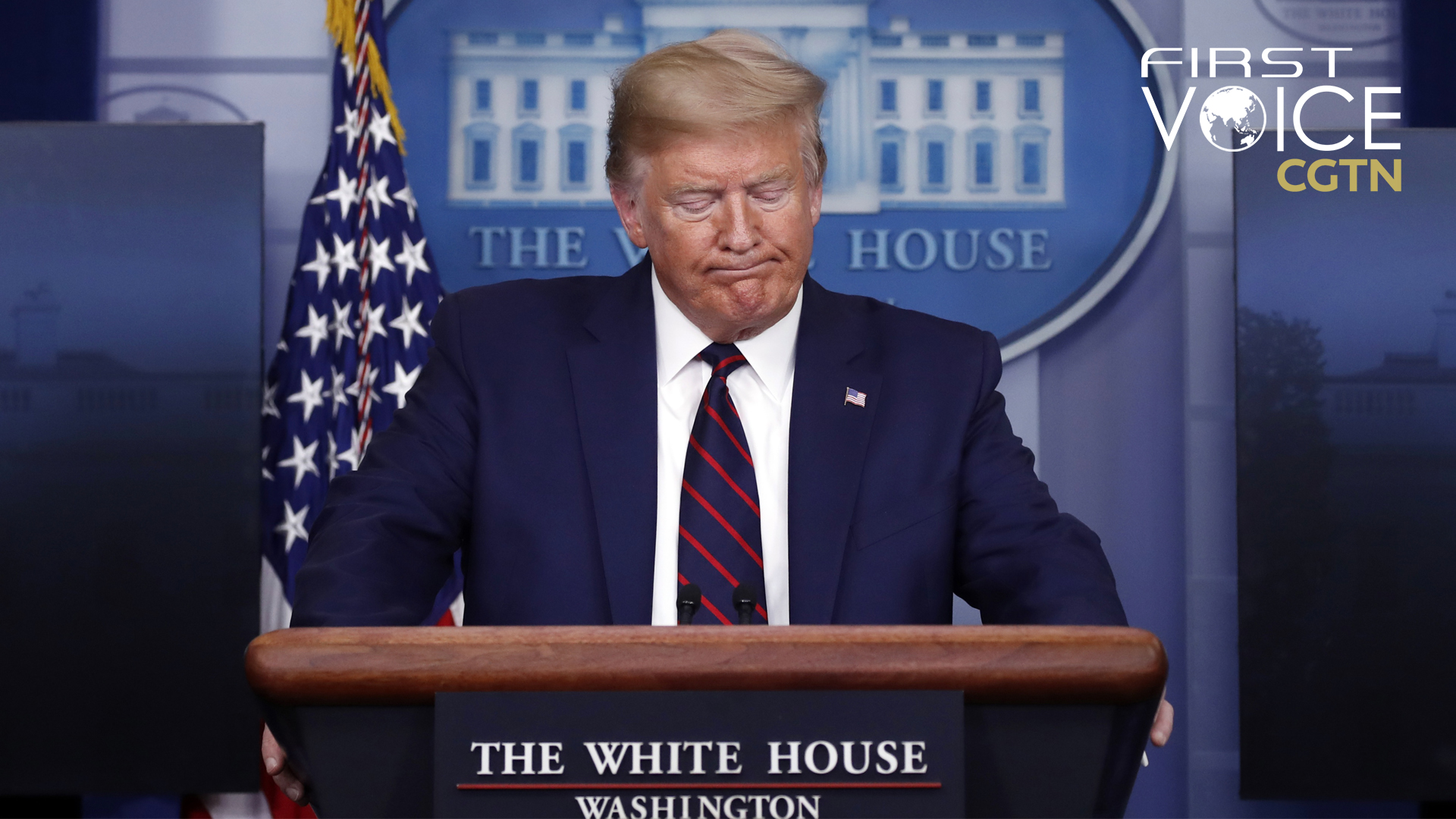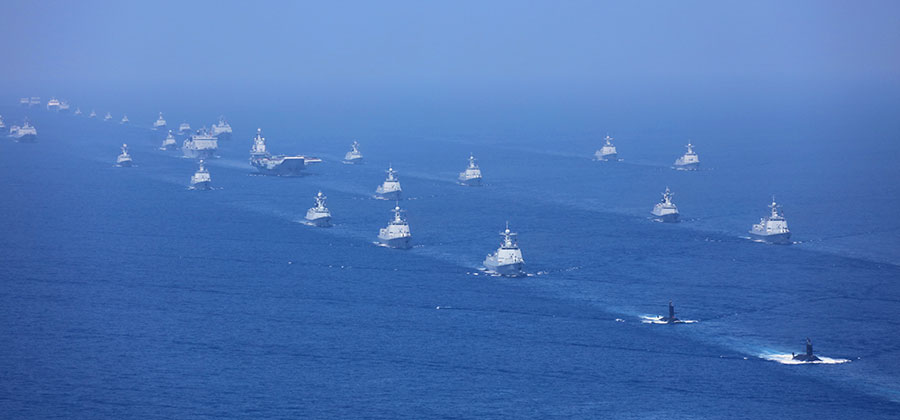
Editor's note: CGTN's First Voice provides instant commentary on breaking stories. The daily column clarifies emerging issues and better defines the news agenda, offering a Chinese perspective on the latest global events.
U.S. President Donald Trump signed the Hong Kong Autonomy Act on Tuesday, requiring sanctions against individuals and banks that crack down on political dissidents in the city. On the same day, the president ordered an end to Hong Kong's special status. The two salvos, according to Washington, is retaliation against China's latest legal move to safeguard national security in Hong Kong.
"Today I signed legislation, and an executive order to hold China accountable for its aggressive actions against the people of Hong Kong," Trump said in the White House rose garden, adding that "no administration has been tougher on China than this administration."
Since assuming office, Trump has messed almost everything up – the COVID-19 pandemic, nationwide protests against racism, Washington's deteriorating ties with traditional allies, to name but a few. Holding high the banner of "Make America Great Again," Trump may be remembered as one of the worst presidents in American history, according to Gallop polls. But Trump is right in one thing – his administration is perhaps the toughest on Beijing, making China-U.S. relationship at their lowest ebb since 1979.
Trump's anti-China hostility is not limited to the Hong Kong issue. The world superpower under Trump has been enthusiastically making unnecessary waves on the South China Sea. After sending two aircrafts to the waters, the U.S. issued a statement on Monday, accusing China of a campaign of bullying to control the resources in the region. "Beijing's claims to offshore resources across most of the South China Sea are completely unlawful," U.S. Secretary of State Mike Pompeo asserted.

China's aircraft carrier the Liaoning, submarines, vessels and fighter jets take part in a review in the South China Sea, April 12, 2018. /Xinhua
China's aircraft carrier the Liaoning, submarines, vessels and fighter jets take part in a review in the South China Sea, April 12, 2018. /Xinhua
China's position on the issue has been consistent. It is dedicated to settling the disputes with ASEAN countries by peaceful means. After all, stability is of vital importance to the development of all regional states. But the U.S., despite the fact it tops the world in both COVID-19 confirmed cases and deaths, has never stopped efforts in flexing muscles, stirring up tensions, and sowing discord between China and its neighboring countries in the South China Sea.
For the Trump administration, these provocations are not enough to demonstrate its aggression on China. The country is also launching a technological warfare against Beijing. Anxious about the potential challenge China's rise may pose to its dominant status, the U.S. is using national security as an excuse to block China's telecommunications firm Huawei from the American market. To further squeeze the development of this tech giant, the U.S. has been pressuring other Five Eyes alliance to act tough on the company.
Washington's efforts paid off. The UK announced its decision to bar Huawei from its 5G network this week. The embattled Chinese firm has made tremendous contributions to the UK in the past years. Apart from the 7,500 jobs it created for the country, Huawei has aligned its investment with the British government's tech development since 2001, thus playing a role in the UK's telecommunications industry. The UK is fully aware of the losses it could suffer from the Huawei ban. Its latest decision on the Chinese firm is entirely a result of Washington's pressure.
Chinese social media apps including TikTok and Wechat are also on Trump's sanction list. Again, national security is Washington's excuse for the ban. From Hong Kong to the South China Sea, to technological firms, the U.S. is launching offensives against China on all fronts. These provocations are not coincidence, but an interconnected part of Washington's overall anti-China campaign. The U.S. has been viewing China as an imaginary enemy for decades, but the Trump administration has gone too far on anti-China endeavors.

TikTok is hugely popular with U.S. young people. /AP
TikTok is hugely popular with U.S. young people. /AP
Election may explain Trump's hardline rhetoric and acts on China. It is worth noting that immediately after the announcement on Hong Kong, Trump diverted the focus of the speech to his Democratic rival Joe Biden, calling him "a gift for the Chinese Communist Party."
Apparently, the businessman-turned-president is playing China card in the election game. With the clock ticking down on November's election, Trump is straining every nerve to woo votes. Hyping China threat is one of the easiest approaches to win support. Bashing China, Trump is eager to showcase his endeavors in protecting "human rights" in Hong Kong, the "freedom of navigation" in the South China Sea, and national security that has been "jeopardized" by China's tech firms.
Moreover, Trump has been bombarded with criticisms since the COVID-19 pandemic. Floyd's tragic death has further fueled the public's anger against the Trump administration. With less than five months before the election, the President has to find a way to distance himself from all the blames. China is his solution.
But the "need" to contain China should have never been prioritized over domestic headaches – soaring COVID-19 cases, widening wealth gap, and entrenched racial discrimination. The Trump administration has apparently put the cart before the horse. Trump's over-emphasis on China may partly explain why he could be remembered as the worst president in American history.
Scriptwriter: Liu Jianxi
(If you want to contribute and have specific expertise, please contact us at opinions@cgtn.com.)